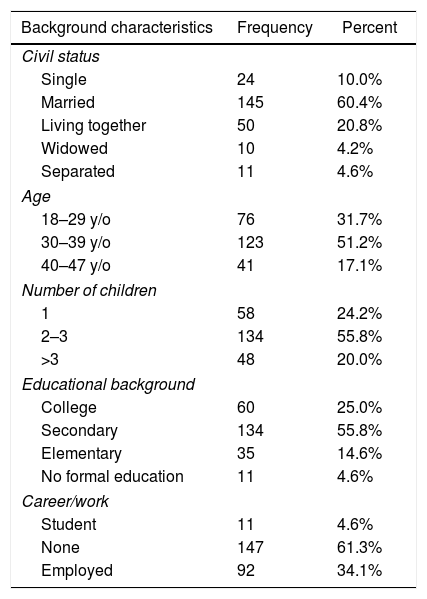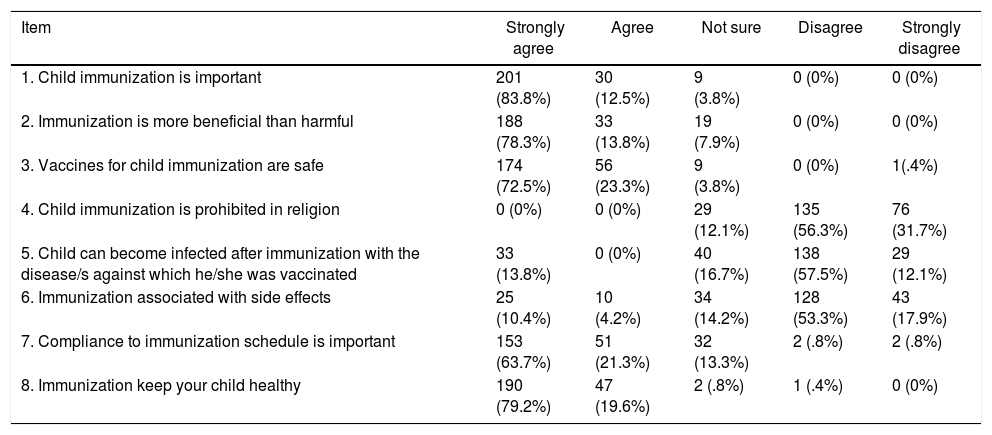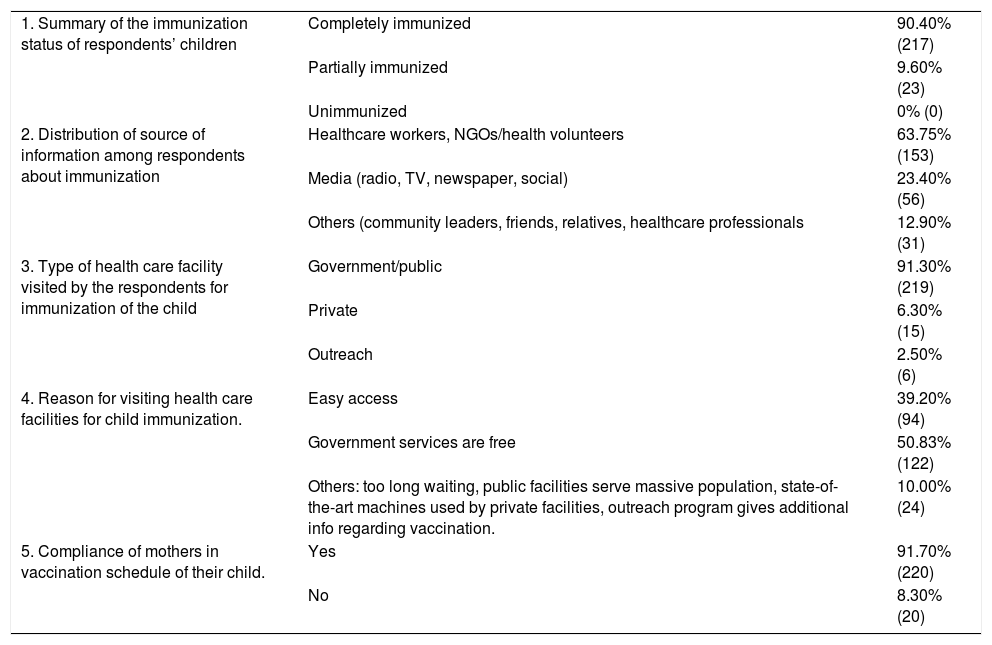Vaccination offers protection against common preventable diseases, and mothers have a significant role in determining the vaccination status of their children. The study aimed to assess the mothers’ knowledge, attitude, and practice toward childhood immunization and associate these variables to their demographic profile.
MethodsA cross-sectional survey was conducted from February to May 2019 involving 240 mothers from a rural community in Pampanga, Philippines.
ResultsBased on the results, 67.50% of the mothers showed a high level of knowledge and a positive attitude toward vaccination especially on the importance (96.30%), benefits (92.10%), and safety (95.30%) of immunization. Majority of the mothers also have good practices showing that 90.40% of them have children who are completely immunized, and 91.70% of them complied with the vaccination schedule. It was also reported that 63.75% obtain information about immunization from health care workers. Majority of them (91.30%) go to government facilities to avail of immunization because of the free services and easy accessibility. However, there were no significant associations on mothers’ knowledge, attitude, and practice and their demographic profile.
ConclusionThe study revealed that mothers in the selected locale showed a high level of knowledge, a positive attitude, and good practices toward childhood immunization. Strengthening of primary health care facilities are needed to further increase the number of mothers with high knowledge on immunization and address other issues concerning childhood vaccination.
La vacunación ofrece protección frente a enfermedades comunes prevenibles, y las madres juegan un papel significativo a la hora de determinar el estatus de vacunación de sus hijos. El objetivo del estudio fue evaluar el conocimiento, actitud y práctica de las madres en lo referente a inmunización, y asociar dichas variables a su perfil demográfico.
MétodosSe realizó una encuesta transversal de febrero a mayo de 2019, en el que participaron 240 madres de una comunidad rural de Pampanga, Filipinas.
ResultadosSobre la base de los resultados, el 67,5% de las madres reflejó un alto nivel de conocimiento y una actitud positiva hacia la vacunación, especialmente en cuanto a la importancia (96,3%), beneficios (92,1%), y seguridad (95,3%) de la inmunización. La mayoría de las madres mostró también buenas prácticas, y reflejó que el 90,4% tenía hijos completamente inmunizados, y que el 91,7% había cumplido el programa de vacunación. También se reportó que el 63,75% obtenía información sobre la inmunización de los profesionales sanitarios. La mayoría de ellas (91,3%) acudía a las instituciones gubernamentales para disponer de inmunización, debido a la gratuidad de los servicios y a su fácil accesibilidad. Sin embargo, no existieron asociaciones significativas entre el conocimiento, actitud y prácticas de las madres y su perfil demográfico.
ConclusiónEl estudio reveló que las madres del lugar seleccionado reflejaron un alto nivel de conocimiento, actitud positiva y buenas prácticas hacia la inmunización infantil. Es necesario reforzar las instalaciones de salud primaria para incrementar aún más el número de madres con alto nivel de conocimiento sobre inmunización, y abordar otras cuestiones relativas a la vacunación infantil.










